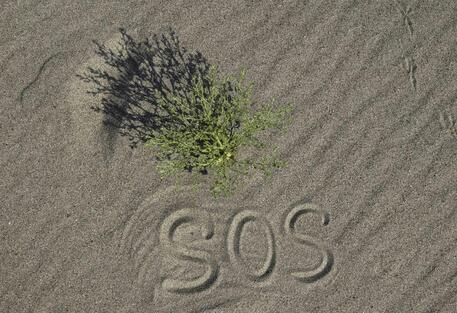(ANSA) - ROME, NOV 11 - Climate change is the top priority
for Italian people after the cost-of-living crisis, according to
the European Investment Bank's (EIB) annual Climate Survey,
released on Monday as the UN COP29 Conference kicks off in Baku.
The study said that over two-thirds of Italian respondents (67%,
17 points above the EU average of 50%) consider climate
adaptation a priority for their country in the coming years.
It said 97% of Italian respondents say it is important for their
country to adapt to climate change, while 91% agree that
spending on adaptation is required urgently to avoid even higher
costs in the future.
Furthermore, 91% of Italian respondents say that investing in
climate change adaptation can create jobs and boost the local
economy.
Scientists say the climate crisis caused by human greenhouse gas
emissions is making extreme weather events such as heatwaves,
droughts, supercharged storms and flooding more frequent and
more intense.
Italy has experienced a long series of such events in recent
years.
This year intense heatwaves and extreme droughts have impacted
southern regions, with Sicily and Sardinia hit especially
severely, while heavy rainfall has led to flooding in Piedmont,
Emilia-Romagna and Marche, prompting the authorities to declare
a state of emergency.
"The devastation caused by extreme weather events is now a
concrete reality for Italy, and the majority of Italians
recognise the urgency of investing in climate change adaptation
measures. In Sicily, for example, an unprecedented drought has
put millions of people in need of water,' said Gelsomina
Vigliotti, EIB Vice-President.
"The European Investment Bank strongly supports Italy, financing
projects that not only protect communities but also create jobs
and strengthen local economies.
"By investing today in climate adaptation strategies and
offering free advisory services to public administrations, we
can build a more resilient and prosperous future for the
country."
First-hand experiences of extreme weather events seem to have
added to the sense that urgent action is required among
Italians.
They survey said 89% of Italian people polled have experienced
at least one extreme weather event in the last five years - nine
points above the EU average.
It said 61% have suffered from extreme heat and heatwaves (six
points above the EU average), 38% have experienced droughts
(three points above the EU average) and 37% have seen heavy
storms or hail.
Three-quarters of Italian respondents reported having suffered
at least one direct consequence of an extreme weather event
-seven points above the EU average of 68%.
It said 23% had health issues like heat stroke or respiratory
problems; 22% were impacted by transportation disruptions like
closed roads, impassable bridges or delays in public transport;
and 20% faced power cuts or energy supply issues, or suffered
property damage from events like floods, landslides or soil
erosion.
Scientists say the Mediterranean is a climate hotspot, with
temperatures rising even faster here than in other parts of the
world.
Although there are many sources of the greenhouse gases that are
causing global heating, the main driver is the burning of fossil
fuels such as oil, gas and coal, sales of which generate huge
profits for the world's energy giants. (ANSA).
>>>ANSA/Climate second-top priority for Italians -EIB survey
Study says 91% think investing in adaptation can create jobs
